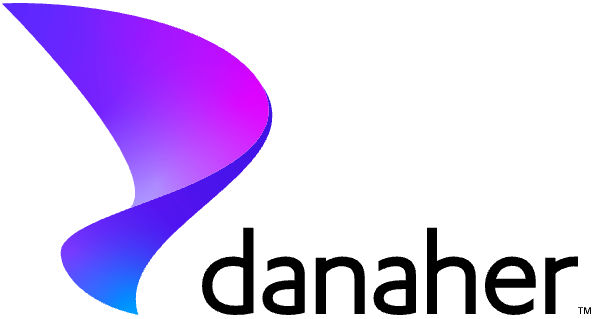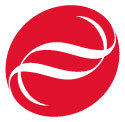预约演示
更新于:2025-05-07

Danaher Corp.
更新于:2025-05-07
概览
标签
肿瘤
感染
免疫系统疾病
单克隆抗体
生物类似药
干扰素
疾病领域得分
一眼洞穿机构专注的疾病领域
暂无数据
技术平台
公司药物应用最多的技术
暂无数据
靶点
公司最常开发的靶点
暂无数据
| 排名前五的药物类型 | 数量 |
|---|---|
| 单克隆抗体 | 14 |
| 生物类似药 | 7 |
| 干扰素 | 7 |
| 预防性疫苗 | 4 |
| 小分子化药 | 3 |
关联
52
项与 Danaher Corp. 相关的药物靶点 |
作用机制 CSF-3R激动剂 |
在研机构 |
在研适应症 |
最高研发阶段批准上市 |
首次获批国家/地区 印度 [+2] |
首次获批日期2016-06-01 |
靶点 |
作用机制 IFNAR激动剂 [+2] |
在研适应症 |
最高研发阶段批准上市 |
首次获批国家/地区 俄罗斯 |
首次获批日期2013-12-01 |
靶点 |
作用机制 CD11a拮抗剂 |
在研机构- |
原研机构 |
非在研适应症 |
最高研发阶段批准上市 |
首次获批国家/地区 法国 |
首次获批日期1997-01-01 |
103
项与 Danaher Corp. 相关的临床试验NCT03767231
Emergency Department Patient's Perceptions and Acceptability Toward a Novel Point-of-Care Hepatitis C Virus Viral Load Testing
Hepatitis C virus (HCV) infection has become the leading fatal infectious disease in the United States. Approximately 75% of individuals who have been infected with HCV are chronically infected with the virus. Untreated chronic infection will lead to severe sequelae such as cirrhosis and hepatocellular carcinoma. Even though the availability of rapid HCV antibody (HCV Ab) screening assay and highly effective antiviral treatment, most people infected with HCV are not aware of the infection status. This gap mainly comes from the current gold standard confirmatory testing for chronic HCV infection, the Polymerase Chain Reaction (PCR)-based HCV RNA viral load assay which requires an experienced trained laboratory technician to perform relatively complicated PCR assay with a turn-around-time of 1 to 2 days (from provider's order to the test resulting). The investigators' rapid HCV Screening and Linkage to Care program has demonstrated that many patients in the investigators' emergency department (ED) are unaware of patient's chronic HCV infection status due to the barriers to receive the gold standard viral load testing.
Recently, a novel Xpert HCV Viral Load (VL) Finger-stick (FS) [Xpert HCV VL FS] point-of-care (POC) test (Cepheid) has been developed. In an observational cohort in Australia, HCV RNA was detected in 40% of participants (85 of 210) enrolled at 3 drug treatment clinics and 1 homelessness service. Sensitivity of the Xpert HCV VL FS assay for HCV RNA quantification in samples collected by finger-stick was 100.0% (95% Confidence Interval (CI), 93.9%-100.0%) and specificity was 100.0% (95% CI, 96.6%-100.0%). The Xpert HCV VL FS test can accurately detect active infection from a finger-stick sample in 1 hour allowing single-visit HCV diagnosis.
In this protocol, the investigators seek to determine the needs and acceptability of a novel POC HCV viral load testing assay among ED HCV Ab positive patients. For this project, the investigators will identify and enroll ED patients with HCV Ab positive but without HCV viral information. The investigators will conduct a randomized study to assign eligible and consented patients to either to POC Testing Group or Standard of Care (SOC) Group. All participants will take a short survey regarding HCV care and treatment. As part of the investigators' ED HCV Screening and Linkage to Care Program, all participants will receive the standard-of-care clinical laboratory-based HCV RNA viral load testing via whole blood (i.e. patient will receive blood drawn). This standard-of-care HCV viral load testing result will be provided to participant when it is available (usually 1-2 days later). Participants in the POC Testing Group will receive the novel POC HCV RNA viral load testing and the result of the novel test will be disclosed to the patients approximately within 2 hours of the testing. Linkage to care information after the ED visit will be compared between two groups. Finally, accuracy of this POC HCV RNA viral load testing in the acute care setting will be determined as compared to the standard-of-care clinical laboratory-based HCV RNA viral load testing. The investigators will also ask all of participants to grant permission to use the remnant blood specimens for an evaluation of future in-house HCV RNA viral load assay.
Recently, a novel Xpert HCV Viral Load (VL) Finger-stick (FS) [Xpert HCV VL FS] point-of-care (POC) test (Cepheid) has been developed. In an observational cohort in Australia, HCV RNA was detected in 40% of participants (85 of 210) enrolled at 3 drug treatment clinics and 1 homelessness service. Sensitivity of the Xpert HCV VL FS assay for HCV RNA quantification in samples collected by finger-stick was 100.0% (95% Confidence Interval (CI), 93.9%-100.0%) and specificity was 100.0% (95% CI, 96.6%-100.0%). The Xpert HCV VL FS test can accurately detect active infection from a finger-stick sample in 1 hour allowing single-visit HCV diagnosis.
In this protocol, the investigators seek to determine the needs and acceptability of a novel POC HCV viral load testing assay among ED HCV Ab positive patients. For this project, the investigators will identify and enroll ED patients with HCV Ab positive but without HCV viral information. The investigators will conduct a randomized study to assign eligible and consented patients to either to POC Testing Group or Standard of Care (SOC) Group. All participants will take a short survey regarding HCV care and treatment. As part of the investigators' ED HCV Screening and Linkage to Care Program, all participants will receive the standard-of-care clinical laboratory-based HCV RNA viral load testing via whole blood (i.e. patient will receive blood drawn). This standard-of-care HCV viral load testing result will be provided to participant when it is available (usually 1-2 days later). Participants in the POC Testing Group will receive the novel POC HCV RNA viral load testing and the result of the novel test will be disclosed to the patients approximately within 2 hours of the testing. Linkage to care information after the ED visit will be compared between two groups. Finally, accuracy of this POC HCV RNA viral load testing in the acute care setting will be determined as compared to the standard-of-care clinical laboratory-based HCV RNA viral load testing. The investigators will also ask all of participants to grant permission to use the remnant blood specimens for an evaluation of future in-house HCV RNA viral load assay.
开始日期2025-11-01 |
申办/合作机构 |
NCT06885528
UniCel DxH 900/690T Monocyte Distribution Width (MDW) Dual Cut-Off Clinical Accuracy Protocol
This study will establish the clinical performance of the Monocyte Distribution Width (MDW) parameter on the DxH 900/ DxH 690T hematology analyzers to aid in the detection and risk assessment of patients in the Emergency Department (ED) for progression to sepsis.
开始日期2025-05-01 |
申办/合作机构 |
NCT06669286
Retrospective Single Cohort Mono-center Study on Success and Safety of Navigated Implant Placement in Proximity of the Alveolar Nerve
Subjects with severely atrophic mandibles were treated with implants and implant-based restorations. Subjects will be required to consent to study participation and data processing according to General Data Protection Regulation (GDPR). Implant positions were planned digitally in a dental software DTX Studio, and implants placed with navigated surgery (Nobel Biocare X-Guide). Implants eligible for this study must be placed 2 mm or less from the alveolar nerve. Implants placed are NobelParallel TiUnite and NobelActive TiUnite. All subjects were followed up for 1 year after surgery to monitor success and adverse events related to the alveolar nerve. Data analysis will include demographics, medical history, Cone-beam Computed Tomography (CBCT) scans/peri-apical x-ray data, soft tissue parameters, and adverse events.
开始日期2024-12-31 |
申办/合作机构 |
100 项与 Danaher Corp. 相关的临床结果
登录后查看更多信息
0 项与 Danaher Corp. 相关的专利(医药)
登录后查看更多信息
3,570
项与 Danaher Corp. 相关的文献(医药)2025-12-31·Emerging Microbes & Infections
Monocyte distribution width (MDW) as a reliable diagnostic biomarker for sepsis in patients with HIV
Article
作者: Sun, Jianjun ; Qi, Tangkai ; Jiang, Rui ; Chen, Jun ; Xu, Shuibao ; Shen, Yinzhong ; Zhang, Renfang ; Tang, Yang ; Shao, Yueming ; Liu, Li ; Tang, Yi-Wei ; Xun, Jingna ; Wang, Xialin ; Yang, Junyang ; Wang, Zhenyan ; Sun, Jinfeng ; Chen, Youming ; Song, Wei ; Qian, Liu ; Lu, Hongzhou
2025-06-01·Journal of Pharmaceutical and Biomedical Analysis
Guilty by dissociation: Part C: Enantiomeric separation of diphenidine-derived new psychoactive substances (NPS) by polar organic chiral high performance liquid chromatography (HPLC) on polysaccharide-based stationary phases
Article
作者: Farkas, Tivadar ; Sallenger, Michael A ; Sutcliffe, Oliver B ; Barrett, Benjamin S ; Euerby, Melvin R ; Costello, Andrew
2025-05-01·Advances in Therapy
Point of Care Nucleic Acid Testing for Influenza-Like Illness: A Cost–Consequence Analysis for High-Risk Patients in Primary Care in Germany
Article
作者: Pollock, Richard F ; Chase, Jordan ; Wittki, Tanja ; Brown, Tray ; Joecker, Anika ; Pöhlmann, Johannes
2,011
项与 Danaher Corp. 相关的新闻(医药)2025-05-05
当大西洋两岸的德国与美国几乎同时为CGT疗法支付开创新模式,又将为中国的医保支付改革带来怎样的借鉴与启示?撰文| 杨景雄 孔凡懿 石洣珏在各国医疗费用持续攀升与技术迭代加速的双重挑战下,医疗支付体系的改革已成为全球性挑战。因此,针对全球公认的昂贵创新疗法CGT,各国都进行了不同的尝试。近期,CSL公司就和德国医保机构达成了一个创新付费协议:天价基因药Hemgenix不用提前全款买单,而是“治好了再付钱”,开创了一种全新的“风险分担”模式。具体来说,医保每年会根据实际治疗效果支付药费,如果治疗失败(比如患者又需要打原来的凝血针),药企就得自己承担损失,医保不用付钱。远在大西洋另一边的美国,即使作为世界最大的医疗市场,也未能避开昂贵CGT疗法给传统医保支付模式带来的严峻挑战。面对这一压力,美国医疗保险和医疗补助服务中心(Centers for Medicare & Medicaid Services, CMS)决定对既有支付体系框架进行改革,在2024年12月启动了CGT医保支付创新试点。简单来说就是启动了 “集中谈判+按疗效支付”的新模式,针对罕见病基因疗法,联邦政府直接和药企谈全国统一价,接受治疗的患者越多,药企返利越多,还派技术团队盯疗效,治不好药企还得退钱。无论是德国的“治好了再付钱”,还是美国的“治不好退钱”的CGT疗法支付新模式,其实都暗示出一个不约而同的全球性变革趋势:面对医疗技术迭代加速带来的成本压力,其定价机制逐步从市场导向转向政府主导按价值付费。当然,这也为中国探索贵价创新疗法支付机制提供了参考,在基本医保支付能力有限的情况下,如何平衡创新激励与医保可持续性?如何通过支付机制设计提升医疗公平?美国CGT医保支付试点:“治不好就退钱”美国公共医疗保障体系由联邦医疗保险计划(Medicare)与医疗补助计划(Medicaid)两大支柱构成。二者分别聚焦老年与低收入群体,共同构成基础保障网络。Medicare由联邦政府统一管理,覆盖65岁以上老年人及特定残障群体。Medicaid由联邦与州政府联合运作,侧重低收入人群(包括儿童、孕妇等弱势群体),各州可在联邦框架下自主制定具体覆盖范围与服务内容,资金由联邦和州政府按比例分担。长期以来,美国Medicaid以州为单位对部分药品开展价格谈判,以此控制支出。尽管2022年拜登政府出台的《通货膨胀削减法案》(Inflation Reduction Act, IRA)强制药企返利(如超出通胀的涨价)等措施对传统药品价格提供了一定约束,但公共医保项目医疗费用仍呈持续攀升势态,尤其在细胞与基因疗法(Cell & Gene Therapy, CGT)等昂贵创新疗法领域,支付挑战严峻。为了应对挑战,美国医疗保险和医疗补助服务中心(Centers for Medicare & Medicaid Services, CMS)于2024年12月4日正式启动了CGT医保支付创新试点。该试点打破传统支付模式,以联邦层面的集中谈判为基础,结合按疗效支付协议(Outcome-Based Agreement)与条件返利(rebate)机制,旨在为可从根本上治愈罕见病和严重遗传疾病的昂贵创新疗法建立可持续的支付解决方案。根据CMS规划,该试点初期将聚焦镰状细胞病(Sickle Cell Disease, SCD)的两种基因疗法——Vertex Pharmaceuticals开发的Casgevy与Bluebird Bio研发的Lyfgenia。此类疗法费用高达220万至310万美元,是史上最昂贵的精准治疗药物之一。然而根据美国疾病控制与预防中心(CDC)的数据显示,SCD患者人均寿命较美国平均水平短20余年,且其中约50%为Medicaid参保者。对于这一低收入及弱势群体而言,若无公共医保支持,患者将无法获得挽救生命的治疗方案。SCD若未得到有效治疗,会产生一系列并发症并造成患者反复住院,进一步加剧医疗负担。CMS希望通过此次试点解决昂贵创新疗法的可及性问题,确保低收入群体及时获得此类天价救命药。根据CMS网站发布的项目介绍书,此次试点的核心目标在于,从联邦层面进行价格谈判、统一市场准入标准并纳入按疗效付费,消除因各州政策差异导致的覆盖不均的问题,保障所有参与州的Medicaid患者可以公平获得基因治疗,最终达到人群健康水平上升的目的。具体而言,这一新支付模式的实施方式主要为三步:联邦层面(CMS)主导进行通过统一谈判与定价、设置分层返利机制等方式控制付费,最后各州可自主选择是否参与。统一谈判与定价:因SCD患者群体规模小但治疗成本极高,CMS选择先从SCD基因疗法试点。具体而言,CMS代表各州与药企进行集中谈判,达成全国统一价格和准入标准。为确保协议落地,CMS将提供技术支持,进行监督和疗效评估,核查各州执行时的合规性,并建立疗效追踪系统(电子健康档案)以评估返利触发条件。图1:CMS CGT准入模式实施时间表(来源:cms.gov)分层返利机制:为了进一步降低药品净成本,CMS在价格谈判中设计了具有借鉴意义的三重返利结构,包括量价挂钩、按疗效结果分期返利、固定价格让步等。药企需提供与采购量挂钩的基础折扣,并根据疗效达标率追加附加返利(如患者五年内复发或五年内人群疾病复发率≥n%,再返利x%)。因此只有患者达到特定疗效标准后,医保才需支付部分或全部药费;若疗效不达标,药企需退还部分费用或承担额外责任。此外,CMS的谈判要求药企提供与绩效无关的固定价格让步(如一次性降价x%),使得谈判结果对医保资金有即时保护效果。值得注意的是,此番价格谈判的结果并不推翻已有的折扣协议,而是将以附加协议的形式,在原有《通货膨胀削减法案》下的医疗补助计划药品返利方案(Medicaid Drug Rebate Program, MDRP)的降价协议上进一步降低价格,使得新药在原先折扣的基础上进一步享受新谈判带来的降价。图2:CMS CGT准入模式返利结构(来源:cms.gov)图3:CMS CGT准入模式返利时间点(来源:cms.gov)试点的实施方式上,州政府层面则体现为各州自愿参与机制,保留一定自主选择权。各州可以自主选择是否参与试点计划,若加入,州政府将直接采用CMS与药企谈判达成的统一价格及支付模式,不得另行议价或修改核心返利规则。CMS CGT创新支付模式试点是美国医保支付体系的一次重大变革。通过集中谈判,美国正在尝试降低昂贵创新药品的支付成本,提高Medicaid参保者的医疗可及性。CMS谈判中纳入按疗效支付的协议也真正将药企的收入与临床结果直接挂钩,既强化了企业对治疗有效性的责任,又减轻了医保资金负担。因此,美国业界认为,尽管本次试点仅涉及两款CGT,但从已公布的CMS文件中可以预计此次谈判对相关产品定价潜力的影响将超越《通货膨胀削减法案》带来的降价。SCD的患者病程较长、病情反复,所用医保资源较为可观。虽然纳入两款药物的前期费用很高,美国CMS认为CGT有望从根源治愈疾病,因此可以减少长期的医疗开支。如果试点成功,该模式可能会扩展至其他高成本的CGT,甚至影响全球医保支付模式的发展。对中国的启示:“最优性价比”或许是医保谈判的下一阶段目标美国CMS试点提出的“集中谈判+按疗效支付”模式为全球医保改革提供了新范例,也为中国医保支付模式的深化提供了可操作性的启示。中国国家医保谈判虽然已经展现出规模效应,但在按疗效支付等机制上仍有探索空间。具体而言,中国可借鉴CMS经验,推进支付模式向精细化方向改革,包括构建以“疗效”为核心的支付机制,在集中谈判基础上建立多层次的返利体系、建设独立疗效评估机制,以实现医保资金的精准支出和可持续运行。首先,最直接的借鉴就是如何保持量价挂钩与激励创新之间的平衡,“直接降价”模式未必是最佳选择。美国CMS CGT试点实践经验表明,分散化谈判模式存在显著弊端,各州政策割裂导致药品价格差异扩大、医保支出持续承压。相较之下,集中谈判通过规模化议价机制,在抑制价格攀升与促进医疗技术可及性方面拥有显著优势。CMS试点选择构建全国统一谈判框架,正是为了利用规模化采购优势实现成本结构优化,同时规避因分散决策而导致的管理低效与资源浪费问题。中国近年来的国家药品医保谈判同样在全球范围内引起关注。中美两国均通过国家层面主导的集中谈判提升买方议价能力,但具体实施路径存在差异。我国医保局使用以价格换取医保资格的策略使药企接受大幅降价来推动创新疗法的医保覆盖。无论实施路径如何,国家集中谈判在快速提升药品可及性的同时,也需要兼顾医保可负担性与激励创新之间的平衡。如果价格被过度压缩的同时,市场销量增幅有限,使企业销售收入难以覆盖前期的研发与生产成本,或使其利润率长期显著低于国际基准,可能抑制企业的研发动力,甚至出现制药企业参与药价谈判积极性降低的情况。中国医保谈判可在现有谈判框架上进一步优化现有支付模式。医保管理可以从单一的价格控制逐步转向综合的费用管理。与此同时,企业从不承担医保风险的角色,转向与医保部门共同承担风险。为此,未来可以探索引入多种风险共担机制(如按疗效支付、分期返利等),避免“一刀切”的支付政策。当今医疗技术快速发展,新药研发模式日益多样,因此新技术本身的复杂性也要求医保支付模式具备更高的适应性。美国CMS试点中的分层返利机制即为此提供了有益借鉴,通过将药企收益与患者临床疗效动态衔接,既确保医保资金的有效使用,又激励企业追求高质量创新,使具备真实临床价值的创新疗法获得可持续的发展空间。美国CMS试点的另一个可借鉴之处在于,如何向按疗效支付的改革迈步。我国现行基本医保支付模式目前主要采用单一价格谈判,按疗效支付模式尚未大规模应用。此次CMS试点的核心之一就是按疗效支付,精准使用医保资金,不为无效治疗买单。在按疗效支付协议的框架下,治疗方案需要达到双方约定患者获益的疗效指标,药企才能获得支付。因此按疗效支付可激起企业医疗质量方向上的创新动力,使企业更注重药品的临床效果和长期收益,而非仅关注上市后的销售。按疗效支付也将推动更多可提供高额临床获益的治疗方式被纳入医保体系,使得更多患者可以得到重焕新生的治疗。未来,中国可以考虑在罕见病、基因疗法等高价值技术领域引入按疗效支付的协议 ,形成精细化的医保支付体系。美国CMS试点的疗效挂钩协议为中国提供了可操作性极强的参考框架。从具体落地的角度上来看,按疗效支付模式的建立需要聚焦以下几个关键环节:一方面,具有分阶段支付与长期疗效观察能力的基础建设是执行按疗效支付模式重中之重的前提条件,也是其运行核心。中国可优先在罕见病、肿瘤免疫治疗(如CAR-T)等高值药品领域试行按疗效支付。例如,对某一CAR-T疗法可要求“完全缓解率”指标作为全额支付门槛,未达标则触发返利机制。另一方面,按疗效支付模式长期健康的运作需要一个完善的疗效评估体系。为保证评估结果的真实性,评估机构必须独立。第三方评估机构或相关部门应负责疗效数据追踪与验证,确保制药企业与医疗机构数据客观真实。此外,任何疗效评估体系都需要针对不同疾病制定量化、可追溯的疗效标准。以基因疗法为例,可设定“基因表达稳定性”“5年无进展生存率”等核心结果指标。需注意避免模糊定义,导致支付争议。同时,法律法规也有待完善,明确医保、药企、医院的责任边界,并建立纠纷仲裁机制。结论:昂贵药品,国家集中谈判+按疗效支付,是全球医保支付的趋势美国CMS试点模式的推出,标志着全球医保改革正在向高效、风险分担、可持续的方向迈进。这一创新支付试点揭示了两个核心理念:第一, 在高价创新疗法支付领域,集中谈判机制能产生显著的规模效应,是提升买方议价能力、控制药品价格的有效手段,中国在创新药谈判中已证明其可行性,美国的CMS试点也在朝这一方向靠拢。第二, 按疗效支付是未来医保改革的关键路径,它不仅能够确保资金的精准使用,更能加速推动优质药物进入市场。在全球医疗成本不断攀升、基因疗法和创新药物层出不穷的背景下,医保支付模式的创新已成为各国政府必须面对的挑战。美国CMS的新试点虽然刚刚开始,但其背后的逻辑正为全球医保体系验证一条可行的道路。对中国而言,需在现有医保谈判基础上,加快构建包含风险共担、数据驱动、全周期管理的创新支付体系,并开展实施方案试点,形成可复制的中国方案。参考资料:CMS. Cell and Gene Therapy (CGT) Access Model [DB/OL].[2025-03-28], https://www.cms.gov/priorities/innovation/innovation-models/cgt.关于作者:杨景雄,清华大学医院管理研究院23级研究生孔凡懿、石洣珏,清华大学医院管理研究院23级研究生清华大学医院管理研究院陈怡教授对本篇文章亦有指导一审| 黄佳二审| 李芳晨三审| 李静芝精彩推荐大事件 | IPO | 融资&交易 | 财报季 | 新产品 | 研发日 | 里程碑 | 行业观察 | 政策解读 | 深度案例 | 大咖履新 | 集采&国谈 | 出海 | 高端访谈 | 技术&赛道 | E企谈 | 新药生命周期 | 市值 | 新药上市 | 商业价值 | 医疗器械 | IND | 周年庆大药企 | 竞争力20强 | 恒瑞 | 石药 | 中生制药 | 齐鲁 | 复星 | 科伦 | 翰森 | 华润 | 国药 | 云南白药 | 天士力 | 华东 | 上药创新药企 | 创新100强 | 百济 | 信达 | 君实 | 复宏汉霖 | 康方 | 和黄 | 荣昌 | 亚盛|康宁杰瑞|贝达|微芯|再鼎|亚虹跨国药企|MNC卓越|辉瑞|AZ|诺华|罗氏|BMS|默克|赛诺菲|GSK|武田|礼来|诺和诺德|拜耳供应链|赛默飞|药明|凯莱英|泰格|思拓凡|康龙化成|博腾|晶泰|龙沙|三星启思会 | 声音·责任 | 创百汇 | E药经理人理事会 | 微解药直播 | 大国新药 | 营销硬观点 | 投资人去哪儿 | 分析师看赛道 | 药事每周谈 | 中国医药手册
基因疗法细胞疗法
2025-05-02
·抗体圈
这篇文章于2025年发表在Stem Cell Reviews and Reports,全面评估了临床级MSC可扩展生产的自动化制造工艺和平台。摘要: 间充质干细胞/基质细胞(MSC)具有卓越的再生和免疫调节特性,因此在再生医学方面具有巨大的潜力。然而,它们的治疗应用需要在严格的监管标准和良好生产规范(GMP)指南下进行大规模生产,这带来了重大挑战。本综述全面评估了临床级MSC可扩展生产的自动化制造工艺和平台。分析了各种大型培养容器,包括多层培养瓶和生物反应器,它们在MSC扩增中的功效。此外,还回顾和比较了自动化MSCs生产平台,如Quantum®细胞扩增系统、CliniMACSProdigy®、NANT001/XL、CellQualia™、Cocoon®平台和Xuri™细胞扩增系统W25。我们还强调了优化培养基的重要性,特别强调从胎牛血清转向人源化或无血清替代品,以满足GMP标准。此外,还讨论了替代冷冻保存方法和控速冷冻系统的进展,这些方法为MSC保存提供了有希望的改进。总之,推进自动化制造工艺和平台对于实现基于MSC的再生医学的全部潜力和满足对基于细胞的疗法日益增长的需求至关重要。强调涉及行业、学术界和监管机构的合作举措,以加速基于MSC的疗法向临床实践的转化。1.背景介绍 间充质干细胞/基质细胞(MSC)是一种存在于各种组织中的多能成体干细胞,包括骨髓、脂肪组织和脐带。它们具有显着的自我更新和分化能力,使它们能够产生各种细胞类型,如成骨细胞、软骨细胞或脂肪细胞。此外,MSC分泌多种生物活性分子,包括生长因子、细胞因子和细胞外囊泡,有助于组织修复和再生。这些旁分泌因子发挥抗炎、抗凋亡和促血管生成作用,促进各种损伤和疾病的组织愈合。此外,使MSC对治疗应用具有吸引力的关键特征之一是其免疫调节特性。MSC已被证明可以通过抑制各种免疫细胞(包括T细胞、B细胞、巨噬细胞和树突状细胞)的增殖和功能来抑制免疫反应。这种免疫调节作用使MSC成为治疗各种自身免疫性疾病、移植物抗宿主病(GVHD)和炎症综合征的有希望的候选者。因此,MSC为再生医学、组织工程和自身免疫性疾病的治疗提供了一条有前途的途径,因此在解决未满足的医疗需求方面具有巨大潜力。 由于MSC的生产被视为ATMP(先进疗法药品),因此其应用由特定的监管框架控制。MSC生产需要符合当前良好生产规范(GMP)标准的大规模细胞扩增系统。GMP指南是由政府监管机构制定的严格法规,例如美国的食品药品监督管理局(FDA)或欧洲药品管理局(EMA),旨在确保药品(包括基于MSC的产品)的质量、安全性和有效性。考虑到基于MSC的疗法涉及事后无法过滤或灭菌的活细胞的给药,MSC生产的首要GMP先决条件是具有受控无菌和多级无菌保护解决方案的环境。洁净室设施、无菌防护服、层流罩和封闭培养系统共同参与其中,以限制空气中的颗粒数量并避免最终产品受到污染。最后但并非最不重要的一点是,训练有素、组织有序、了解制造过程的员工对于不伤害患者也很重要。 基于MSC的疗法的生产过程包括供体和MSC来源选择、细胞分离和扩增、质量控制以及扩增细胞的进一步移植等步骤。将MSC用于治疗目的的关键挑战之一是能够在保持其特性和功能特性的同时大量扩增它们。一般来说,天然组织和收集的生物材料中MSCs的初始频率非常低——据报道,骨髓中每104-105个单核细胞或脂肪抽吸物中每102-103个细胞中MSC少于或大约1个。传统的MSC体外扩增至临床相关产量(数百万至数亿个细胞)通常非常耗时、劳动密集型,并且需要大量的培养箱空间。因此,它不仅效率低下,而且还可能损害扩增的MSC的质量。重要的是,以前的研究报道了MSC在晚期传代中的增殖和分化能力下降。 MSC制造过程的另一个组成部分是最终产品的质量控制。这包括细胞活力、表型标志物、分化潜能和无微生物污染的检测,以评估制造细胞产品的纯度、特性、效力和安全性。根据国际细胞治疗学会(ISCT)的规定,MSC必须满足以下方面:(I)塑性粘附性,(II)CD105、CD73和CD90等分化簇(CD)分子表达阳性,缺乏CD45、CD34、CD14、CD11b、CD79α和人类白细胞抗原(HLA)-DR的表达,(III)在体外分化为脂肪细胞、软骨细胞和成骨细胞[9].然而,为了确保MSC的安全性和功能性,应进行免疫调节活性和基因组稳定性的额外测试。2.MSC生产平台 大规模生产临床级MSC的生物工艺策略是一个复杂的过程,对封闭和无菌环境有很高的要求。因此,MSC加工必须在符合GMP的专用设施中进行,以最大限度地降低物理屏障和空气过滤污染的风险。为了响应该领域的客户需求,一些制造商正在开发和引入用于自动和密闭细胞培养的新技术,例如量子®细胞扩增系统(TerumoBCT)、CliniMACSProdigy®(MiltenyiBiotec)、NANT001/NANTXL系统(VivaBioCell)、CellQualia™(Sinfonia技术)、Cocoon®平台(Lonza)或Xuri™细胞扩增系统W25(Cytiva)(图1).生物反应器的利用在扩大基于细胞的疗法的可及性方面具有巨大潜力,特别是对于缺乏现场GMP合规实验室的中心。这些生物反应器为细胞培养和扩增提供了受控的环境,确保了细胞生产过程的一致性、可重复性和质量。通过使用生物反应器,没有GMP设施的中心仍然可以生产临床级细胞,从而将基于细胞的治疗范围扩大到更多患者。图1:大规模生产临床级间充质干细胞/基质细胞(MSC)的生物加工策略的复杂概述。MSC扩增平台(Quantum®细胞扩增系统、CliniMACSProdigy®、NANT001/XL、CellQualia™、Cocoon®平台和Xuri™细胞扩增系统W25)需要以下输入:样品或分离的细胞、培养基、洗涤试剂(磷酸盐缓冲盐水)、解离试剂(胰蛋白酶、TrypLE)和可选添加剂。细胞收获、质量控制(最终产品的纯度、特性、效力和安全性)、冷冻保存和产品配方等下游工艺也是临床级MSC生产的重要组成部分。 Terumo-BCT开发的量子®细胞扩增系统代表了一种利用中空纤维生物反应器的自动和闭式细胞培养的替代策略。此外,该设备以适合细胞培养过程的速率提供连续的培养基更换。生物反应器本身的面积为21,000cm2,相当于120个T-175培养瓶。值得注意的是,在细胞接种前,该生物反应器的中空纤维必须涂有粘合基材,如纤连蛋白、波形蛋白或冷沉淀物(通常来自多个供体的血液)。迄今为止,已有多达25项实验研究测试了Quantum®细胞扩增系统用于成人MSC扩增,使其成为贴壁细胞使用最广泛的生物反应器系统。此外,在比较脂肪组织来源的MSC(AT-MSC)的产量和群体倍增时,Quantum®优于基于培养瓶的手动培养,因此适用于大规模生产。此外,用人血小板裂解物(hPL)取代胎牛血清(FBS)作为生长补充剂,可显著增强AT-MSC在Quantum®内的扩增,同时保持其质量。例如,以20×106的密度加载到Quantum®中,来自骨髓的解冻MSC(BM-MSC)(在第2代)(在第2代)扩增7天,产量为100–276×106。此外,几项研究表明,能够在体外抑制T淋巴细胞活化的量子®扩增BM-MSC可以保持免疫调节功能。此外,Quantum®系统可以直接连接到任何气体及其组合,从而提供常氧或低氧微环境。Hanley等人观察到,与Quantum®和缺氧扩增的BM-MSC相比,培养瓶和常氧培养的BM-MSC的生产率较低。另一方面,加强对乳酸和葡萄糖水平的监测,再加上Quantum®生物反应器内新鲜培养基的持续供应,很可能促进了卓越的存活率和整体生长。通常,与基于培养瓶的增殖相比,Quantum®减少了所需的传代次数(减少到一半)和开放作(从54400个步骤减少到133个步骤)。此外,他们的研究还声称量子®扩增BM-MSCs在缺血性卒中大鼠模型中的治疗效果。另一项研究揭示了源自脐带组织(UC-MSC)的Quantum®制造的MSC和移植到诱导膝关节关节表面缺损小鼠身上的BM-MSC的愈合能力。采用Quantum®生物反应器系统的临床试验探索了GVHD、2型糖尿病、帕金森病、高级别神经胶质瘤、缺血性心脏病、中风和急性呼吸窘迫综合征等疾病的治疗方法。利用各种MSC类型,包括BM-MSC、AT-MSC或神经MSC,这些试验证明了使用Quantum®系统在不同剂量和给药途径下产生的细胞的安全性、耐受性和有效性。 来自MiltenyiBiotec的CliniMACSProdigy®设备利用ACC(贴壁细胞培养)工艺和适当的管路组(TS730),可实现自动MSC分离(通过骨髓样本的密度梯度离心)、接种、培养、培养基更换、繁殖和收获。Godthardt等人展示了该系统的大规模和临床级效率以及特定MSC-BrewGMP培养基的使用。此外,他们声称原代组织分离的BM-MSC以及AT-MSC或UC-MSC的单细胞悬液可以由CliniMACSProdigy®处理。此外,据报道,使用1层CellSTACK®的10天程序能够产生100多个集落,由29至5000万个MSC(第零代–P0)组成,这些集落是从马电针动员的外周血样本中分离出来的。分离的MSC具有特征性的成纤维细胞样形态和MSC表型特征。重要的是,与手动方案相比,Prodigy系统在P0收获的MSC数量显著更高,并且通过随后的手动传代提高了纯度,P3中CD73、CD90和CD105的阳性率达到95%。在制造商研究中,人骨髓单核细胞最初接种在1层CellSTACK®腔室中。然后在CliniMACSProdigy®系统内使用MSC-BrewGMP培养基洗涤、培养和扩增这些细胞,并将其扩增成三个5层CellSTACK®腔室。为了进行比较,使用T175培养瓶进行手动扩增过程。扩增14天后,CliniMACSProdigy®系统产生3.8×10⁸个BM-MSC(第2代),而手动过程在同一传代下产生4.5×10⁸个细胞,表明自动和手动方法之间的细胞数量相似。然而,平台复杂性和高耗材价格使CliniMACSProdigy®成为昂贵的制造选择,尤其是对于小规模MSC增殖。 NANT001或XL系统提供了另一个平台,在XL系统的情况下,包含一个CellSTACK®(636cm2)或两个互连的细胞培养容器(T-175和3180cm2的5层培养瓶)。与CliniMACSProdigy®不同,该系统不需要外部培养箱。另一方面,它的产能较低,但足以满足中小批量的自体生产。此外,它还允许对过程控制信息(例如温度、pH值、汇合度和细胞分离)进行智能和远程监控。NANTCartridge是一个封闭系统,由四个通过无菌连接器易于连接的部分组成[23]。Fitzgerald等人测试了NANT001系统在符合GMP的要求下生产来自健康供体的自体AT-MSC的效率。手动和自动过程同时进行,将加工后的基质血管组分(SVF)的细胞以4,000个细胞/cm2的密度放入一个636cm2的CellSTACK®培养室中。总体积为150mL的培养基由补充有5%hPL和1U/mL肝素的最低必需培养基(α-MEM)的α改良型组成。用150mL磷酸盐缓冲盐水洗涤培养样品,然后在第1天、第3天和50%汇合时更换培养基。在达到90%汇合度24小时后,用50mL重组TrypLE溶液收获扩增的细胞。来自三次验证运行的数据显示,分别持续6-8天和7-9天的手动和自动过程的细胞产量(平均2.7×107)和活力(>90%)相当。此外,两种扩增的AT-MSC都具有MSC表型特征以及与脂肪细胞和骨细胞相似的分化能力。 CellQualia™代表了另一个由Sinfonia技术设计的智能细胞处理系统。该系统使用两个细胞培养单元以及从1层到5层(CellSTACK)®和36层(HYPERStack®)腔室的自动传代,实现MSC的紧密和自动化生产。分析技术的内置过程通过对自动采集的样品进行在线(温度、CO2、形态、pH、葡萄糖和乳酸)和离线分析,确保高水平的质量控制。通过监测乳酸水平随时间的变化,可以间接评估细胞生长和增殖动力学。一旦乳酸水平达到表明最佳细胞密度的某个阈值,系统就会表明需要自动传代。此外,犬尿氨酸的积累和低水平2-氨基己二酸的维持表明细胞在整个过程中保持未分化状态。Hosoya等人证实了CellQualia™连续繁殖的MSC的塑料粘附和表型特征,这些MSC对MSC特异性标志物CD105、CD73和CD90呈阳性。然而,该研究缺乏对MSCs阴性标志物及其分化能力的评估。从2×10开始,该公司表示,在培养2次传代和6天后,MSC产量相当于1×108个细胞。 Lonza推出的Cocoon®平台旨在满足自体(患者规模)细胞疗法的生产要求。该系统使用封闭的一次性盒,为培养锚依赖性或独立细胞提供平面或体积空间。在包埋盒内,热障将温暖和寒冷区域分开,确保细胞培养(37°C)和试剂储存(4°C)的最佳条件。此外,该盒还配备了pH和溶解氧传感器,可在制造过程中实时记录数据。该平台是可定制的,易于使用,并且需要最少的作员干预,但是,目前其广泛的实施尚不清楚。 由Cytiva开发的Xuri™细胞扩增系统W25代表了细胞治疗生物工艺的飞跃。该系统采用单向WAVE™摇摆技术和各种培养体积(从300mL到25L),适用于小规模研究或大规模临床生产。WAVE™技术提供的轻柔摇动运动增强了营养物质的分布和气体交换,这是维持最佳细胞生长和活力的关键因素。专为免疫治疗中不依赖贴壁的细胞(嵌合抗原受体T细胞)的可扩展扩增而设计,但也可以参与微载体上的MSC生产。Silva等人在小体积接种到2L细胞袋的CultiSpher-S微载体上进行了UC-MSC的扩增,并在最初的24小时内保持静止。之后,在600mL培养基中的摇摆培养物中扩增UC-MSC。总体而言,该系统产生的膨胀系数范围为12.3至24.8。重要的是,摇摆培养中采用的动态条件不会对扩增细胞的质量产生负面影响,这通过各种质量控制措施(包括活力、表型保留和分化潜力)得到验证。有趣的是,另一项研究发现,在摇摆生物反应器中自发产生的MSCs聚集体表现出增加的干性、迁移特性和血管生成因子表达,从而提供了更高的治疗潜力。总体而言,Xuri™细胞扩增系统W25是一种多功能且高效的MSC扩增工具,为研究和临床应用提供了可靠的解决方案。3.细胞培养容器的放大 多层培养瓶是大规模MSC生产的重要组成部分,与传统使用的T-25、T-75和T-175培养瓶相比,其表面积更大(表1),从而减少了MSC的广泛传代培养。通常,放大涉及使用更大的生物反应器来提高生产能力,需要进行大量优化以保持更大体积的细胞质量。相比之下,横向扩展通过添加更多相同大小的生物反应器来扩大容量,确保各单元的条件一致,但需要更多的空间和资源。在放大和横向扩展之间进行选择取决于生产目标、预算和保持细胞一致性的能力等因素。如今,多层培养瓶是最有效的大规模策略之一,据报道其扩增率为100倍甚至更高。另一方面,随着细胞培养过程扩大到更大的容器尺寸,在整个生产过程中保持无菌和均一的培养环境变得越来越具有挑战性。表1.Corning和ThermoFisher不同多层培养瓶的生长面积 CellSTACK®多层培养瓶(Corning)和Nunc™CellFactory™系统(ThermoFisher)就是此类容器的示例,它们由堆叠在一起的多层细胞培养表面组成。它们都有5种尺寸,从1到40层不等,每层提供636厘米和632厘米的生长面积2。据报道,对于2室CellSTACK®,在5天的培养过程中,最终细胞产量为2.84×108(WJ-MSCs(沃顿氏果冻-MSCs)和4.69–5.65×107(BM-MSCs)。比较这两项独立研究,初始接种的细胞数量存在显着差异,范围为1000至4000个细胞/cm2,导致计算的扩增率存在195.28倍和9.22-11.10倍的巨大差异。同样,两位独立作者使用4室Nunc™CellFactory™在收获时获得了不同的细胞产量,对应于扩增的BM-MSC×7.8×108和2.5108。最后,在5腔CellSTACK®中培养牙髓来源的MSC(DP-MSC)11天,分别产生3.2×108个细胞在补充FBS和hPL的培养基中培养的108个细胞。总体而言,接种密度、培养基、某些添加剂和培养时间等细胞培养参数会影响给定系统的细胞产量。此外,康宁的CellBIND®表面处理通过增加聚苯乙烯细胞培养容器的亲水性来增强细胞粘附和生长,使其更有利于多种细胞类型。这种处理确保了一致、稳健的细胞培养条件,这对无血清或低血清培养基应用特别有益。 HYPERFlask®和HYPERStack®容器采用独特的细胞-介质环境气体交换技术,通过透气材料消除容器内的内部顶部空间。在补充有15%人AB血清的α-MEM中,以2×103个细胞/cm2的浓度接种10层HYPERFlask®(1720cm2)(共3.44×106个细胞)中,从人脐带基质(UCM-MSCs)衍生的扩增MSC能够在培养11天后产生4.5×107个细胞,相当于12.99的扩增率。HYPERStack®由Stackettes组成–一个单独的细胞培养室,由顶板和透气膜组成。每个Stackette拥有500cm2的生长面积,它们通过两个(液体和空气)歧管互连,形成一个模块,每个Stackette之间有一个露天气管空间。因此,HYPERStack®的12层和36层模块(相当于6000和18000cm2)具有与传统的2层和10层堆叠培养容器相同的体积占地面积。从而最大限度地减少培养空间,同时满足培养细胞的代谢需求。Sherman等人进行的初步数据显示,以3×103个细胞/cm2的密度接种BM-MSCs扩增5天后,可以®产生8.7亿个细胞的平均收获产量(扩增比为16.11)。 康宁®CellCube®系统为贴壁细胞培养提供了一个新颖、稳定且可扩展的平台。其模块化设计由平行的10、25或100个聚苯乙烯板组成,可在紧凑的占地面积中提供8500至85000cm2的大生长表面积。在CellCube®系统内,在每个培养板的两侧接种和培养细胞,使培养空间加倍。接种过程需要优化贴壁时间和系统的多次垂直旋转,以均匀接种细胞。此外,内置蠕动泵和一次性生物反应器可确保高效的连续流体再循环,以实现最佳的气体和营养物质输送。CellCube®系统的这种基于灌注的设计创造了一个与体内条件非常相似的环境,从而提高了细胞生产率。提供的信息概述了HEK293T和Vero细胞培养物在100层CellCube®模块中的成功扩增,展示了对培养条件的严格控制以及使用代谢物分析来确定收获时间。HEK293T和Vero细胞培养物均能有效扩增,分别×10个10个细胞的产量达到1.4和1.1。4.优化MSC生产:利用符合GMP要求的血清和无血清培养基 工艺验证是药物开发中的关键步骤,在此期间,必须仔细评估可能危及产品安全性的培养基、添加剂和材料的使用。例如,使用动物源性添加剂存在病原体传播的风险,需要进行彻底的风险分析并考虑替代添加剂。选择合适的培养基对于MSC的扩增和质量是必不可少的,尤其是在临床目的的大规模生产中。FBS作为富含生长因子和营养物质的天然补充剂,在许多实验室应用中用于细胞体外扩增,有着悠久的历史。然而,使用FBS培养旨在进一步用于治疗应用的MSC会带来重大风险,这主要是由于牛病毒、朊病毒和人畜共患病原体的潜在污染,这些物质可能会引发人类的免疫反应。在GMP级MSC生产中,利用经验证的FBS彻底检查免疫调节剂的存在,对于维持质量标准至关重要。γ辐照处理被认为是防止FBS中病毒污染的最佳方法之一,它与GMP流程一致。然而,采用无异种成分(xeno)的培养基,如富含人源物质的含血清培养基或无血清和无异种成分的培养基(SXFM),是符合GMP要求的MSC生产的最佳选择。将人类成分而不是动物衍生物加入培养基中,可确保符合细胞扩增过程的GMP指南。目前,包括人血清、脐带血血清、富血小板血浆和hPL的人源化补充剂被用作FBS的替代品(表2)。尽管自体人血清是MSC扩增的最佳选择,但获得足以产生临床相关量MSC的血清将具有挑战性。然而,来自多个供体的混合同种异体人血清可能有助于克服这一限制并促进MSC的大规模生产。尽管如此,人源补充剂(例如自体人血清)还有下一个显着的缺点,即从一个批次到另一个批次观察到的显着差异。尽管这些变化可以通过每批生产大型供体库来减轻,但它们同时也增加了可能因人类病毒而引起的感染风险。因此,这些障碍可能对大规模临床试验中MSCs的充分扩增和相关治疗效果构成重大挑战。 为了在不使用任何动物产品的情况下获得安全的人类产品,研究人员使用psoralen或核黄素灭活的hPL作为FBS的替代品,验证了在GMP条件下生产MSC。这种方法保留了MSC的多能和免疫调节能力。Mareschi等人使用hPL而不是FBS从5个骨髓样本中分离MSC。他们研究了一种新的hPL生产方法,该方法涉及用Ca-Gluconate处理血小板池以形成凝胶凝块,然后机械挤压以释放生长因子。将通过冻融循环和添加肝素获得的标准hPL(hPL-E)与新的hPL(hPL-S)没有血小板或纤维蛋白原,但含有相似数量的蛋白质和生长因子。hPL-S需要更少的生产步骤来符合GMP条件,保持干细胞标志物,并显示出显着差异,例如HLA-DR表达较低,使其成为MSC生产的有效替代方案。目前,有几种市售的病毒灭活GMPhPL以及最终的商业产品,如人血小板裂解物(生命科学生产)、血小板裂解物MultiPLi(Macopharma)和PLUS™GMP级(CompassBiomedicalInc)。此外,与hPL相关的污染风险得到有效管理。例如,自2018年以来,法国的所有血小板浓缩物都经过补骨脂素处理,以降低微生物污染的风险。另一种消除潜在病原体的方法是在使用hPL之前对其进行伽马射线照射[57]。然而,与hPL产品生产相关的一个重大限制是必须确保血小板供体的充足供应。管理符合GMP的培养基的补充选择是使用合成的、化学成分明确的培养基,例如BDMosaic™间充质干细胞无血清(BDBiosciences)、MesenCult-XF™(StemCellTechnologies)、MSCNutriStem®XF(生物工业)、无血清成分确定的细胞培养物(TNCBioBV)等。上述培养基的成分仅由已知化合物组成,使其成为FBS的潜在可取替代品。尽管如此,它们特别适用于研究目的,因为它们需要不断开发和改进以维持关键的细胞功能,例如粘附、分化、免疫调节和其他基本过程。用于优化和可重复的MSC生产的下一组培养基是具有高质量成分的无血清、无异种成分配方,例如MSC-BrewGMP培养基(MiltenyiBiotec)和StemProMSCSFMXenoFree™(Invitrogen)等。然而,化学成分明确的培养基的一个关键限制是由于缺乏附着因子,MSC增殖缓慢或有限,以及细胞对底物的粘附不足。因此,使用某些培养基需要在塑料表面预涂特定物质,以确保最佳的细胞附着和生长。另一方面,补充人血浆衍生物的StemProMSCSFM™(LifeTechnologies)等培养基对于无包被的MSC培养来说并不是最佳。MSC-BrewGMP培养基(MiltenyiBiotec)是市场上唯一一种符合GMP要求的SXFM,因为它是袋装的,用于封闭系统培养,不需要表面涂层。最常用的分子,如纤连蛋白、层粘连蛋白和肽,用于表面改性,通过引入正表面电荷来促进细胞生长,从而增强粘附力。表2:用于 GMP 级 MSC 生产的培养基 比较补充动物或人血清的不同培养基类型与无血清培养基(SFM)的效果,可得出对MSC特性的显著结果。Dreher等人证明,与在10%FBS中培养的AT-MSC相比,在补充有10%人血清的培养基中培养的AT-MSC在应用后在非肥胖糖尿病免疫缺陷小鼠肺和肝脏中的存在减少。总之,在人血清存在下培养的AT-MSC在特异性粘附和细胞外基质相关分子的下调方面表现出有趣的变化。他们认为整合素α6(CD49f)表达的降低可能与对层粘连蛋白的粘附减少有关。尽管如此,减少间充质干细胞在肺部的滞留可能会降低肺栓塞的风险。细胞扩增培养基的选择在影响MSC的增殖动力学等特性方面起着关键作用。多项实验研究揭示了各种培养基类型对MSC特性和培养动力学的显着影响。Wuchter等人进行了一项比较分析,研究了三种符合GMP的培养基对MSC扩增的影响:补充有10%混合hPL的基础培养基(Dulbecco改良Eagle培养基(DMEM)-低葡萄糖)、StemPro®MSCSFMCTS(Invitrogen)(用于人离体组织和细胞培养加工应用)和补充有10%FBS的非XFMSCGM™(Lonza)(仅供研究应用)。最显着的差异出现在延长培养(50天)后BM-MSCs的大小和增殖动力学。StemPro®MSCSFMCTS显著促进了生长,与其他MSC相比,产生的MSC具有更小但高度均匀的形态。在hPL培养基中培养的BM-MSCs表现出明显的突起,但与在含有FCS的MSCGM™中培养的BM-MSC相比更小。然而,与在MSCGM™中培养相比,用hPL培养基培养的MSC观察到的生长增加略大。血小板裂解物对MSCs扩增的促进也与其他研究的结果一致。此外,Poloni等人证明,在含有10%混合同种异体人血清的Iscove改良Dulbecco培养基中培养的CD271阳性BM-MSC与在补充动物血清的培养基中培养的培养基相比,表现出相当的分化能力以及表面和基因标志物的表达。此外,未观察到核型改变。他们还证明,使用CD271选择的细胞和混合的同种异体人血清,仅30天内从5mLBM抽吸物中细胞产生显着增加到临床显着水平(10×10^8MSC)[66]。此外,SFM的使用也对MSC的特性产生了显着影响。例如,PRIME-XVSFM(IrvineScientific)已被证明可以增强人BM-MSC中的集落形成能力,提高成骨潜力,并增加群体倍增。因此,它是动物血清的优质替代品。尽管基于FBS的培养基和PRIME-XVSFM的渗透压相似(分别为0.31和0.29Osmol/kg),但SFM更接近人类生理条件,因此被认为对细胞有更好的影响。此外,Aussel等人证明,SXFM,特别是MSC-BrewGMP培养基(MiltenyiBiotec),显著影响MSC的克隆形成效率。具体来说,与传统的AT-MSC和BM-MSChPL培养基相比,SXFM条件下的菌落大小和密度增加。 值得注意的是,用于收获和分离用于临床应用的MSC的其他补充试剂也必须满足所有安全标准。目前,大多数临床研究使用猪来源的胰蛋白酶进行细胞分离制备。然而,为了优化该程序,使用TrypLE(Gibco,ThermoFisherScientific)或TrypZean(Sigma-Aldrich)等重组胰蛋白酶是有利的,因为它们对细胞的影响更温和,并且与猪来源的胰蛋白酶相比不存在异种蛋白。对于GMP条件下的酶组织消化,建议使用GMP级胶原酶而不是I型胶原酶,因为后者可能含有可能携带传染源的成分。出于这些目的,例如,源自溶组织梭菌的胶原酶NB6GMP级(NordmarkBiochemicals)是一种用于分离干细胞的高纯度组织解离酶。它包含具有酶活性的蛋白质,包括I类和II类胶原酶、中性蛋白酶和梭菌蛋白酶。0.4PZU/mL胶原酶NB6的最佳浓度和3h的消化时间表明,在第0代时,沃顿胶溶胶衍生的MSC产量更高。此外,其他类型的胶原酶也用于组织消化:CLSAFA(Worthington)和LiberaseMTF-SGMPGRADE(Roche)。另一方面,胰蛋白酶和胶原酶的另一种替代替代品是Accutase(Life Technologies),它是蛋白水解酶和胶原水解酶的混合物。然而,离心、过滤或微碎裂等机械作提供了避免与胶原酶使用相关的安全问题的替代方法。根据迄今为止收集的数据,来自骨髓、脂肪组织和脐带的MSC是临床试验中最常用的细胞来源。然而,AT-MSC在大规模生产中具有优势,因为与来自同一供体的BM-MSC相比,AT-MSC在长时间培养过程中具有增强的遗传和形态稳定性,并且增殖更快。此外,AT-MSCs在25次传代后表现出分化潜能降低,而BM-MSCs的免疫抑制作用仅在7次传代后观察到下降。5.临床条件下MSC的冷冻保存 细胞或组织在细胞疗法中的应用导致了治疗获得性或遗传性疾病的新型药物的诞生。这些是已知的ATMP,被定义为主要生物作用由细胞或组织执行的治疗产品。冻存保存仍然是延长细胞(包括MSC)保存时间的唯一技术。它有助于维持细胞功能特性,并允许细胞聚集以达到临床使用所需的数量。与成骨细胞和软骨细胞等特殊细胞的冷冻保存相比,MSC必须考虑更多因素。具体来说,评估MSC冷冻保存后的免疫调节和多系分化能力、细胞活力和表型至关重要。如果这些能力受损,MSC可能无法保持原有的免疫调节和再生特性。冷冻保护剂 冷冻保护剂是能够防止生物物体遭受冰冻损伤并确保其解冻后存活的试剂。冷冻保护剂在冷冻过程中的保护作用基于它们与细胞内外的水分子形成牢固键的能力,这比水分子本身之间的键更强。此外,它们还可以降低盐浓度,最大限度地降低破坏细胞蛋白质结构的风险。低温保护剂还与膜的结构部件粘合,保护它们免受冰晶的损坏(图2)。图2:细胞冻存机制作为基于细胞的疗法生产的关键步骤。在冷冻保存过程中导致细胞损伤的过程涉及特定的机制。为了防止这种伤害,必须在细胞悬液中添加适量的适当冷冻保护剂(CPA)并应用最佳冷却速率。 已经开发了各种技术来冷冻保存MSC,例如慢速冷冻和玻璃化。但是,这些方法有局限性。首先,即使使用冷冻保护剂(CPA),使用这些方法保存的MSC仍然存在冷冻损伤的风险。其次,二甲基亚砜(DMSO)等CPA可能会无意中诱导MSC分化为神经元样细胞。为了解决这些问题,需要优化CPA的使用或开发新的冻存方法。微/纳米技术的最新进展提供了有希望的改进,有可能提高冷冻保存的效率并克服当前方法的局限性。在高度疏水性的纳米粗糙表面上冷冻封装在纳升液滴中的细胞以及创建无毒的纳米级生物启发CPA等创新是该领域特别有前途的进展。 已建立的MSC冻存方案使用DMSO。残留的痕量DMSO,即使在洗涤步骤之后,也会对患者造成重大不良反应的风险。此外,DMSO与异常基因表达和MSC分化有关。因此,开发一种不含DMSO的MSC冻存方法是非常可取的。海藻糖、植物蛋白和防冻蛋白模拟物等物质已与降低浓度的DMSO相结合,以改善MSC冻存。这些组合成功地抑制了冰的再结晶,并保护了细胞膜,类似于天然防冻蛋白。目前有几种市售的冷冻保存选项用于MSC的冷冻保存。 CryoStor®CS2、CS5和CS10是市售的GMP级冻存培养基,设计用于优化细胞和组织在−80°C至−196°C的超低温环境中的保存。这些制剂在冷冻、储存和解冻过程中提供保护环境,增强细胞活力和功能,同时无需血清和高细胞毒性试剂。CryoStor专门处理细胞的分子生物学方面,减少冻存诱导的延迟性细胞死亡,从而提高解冻后活力,特别是对于MSC和肝细胞等敏感细胞类型。该产品线包括CryoStorCS2(2%DMSO)、CS5(5%DMSO)和CS10(10%DMSO)。冻存过程涉及关键步骤。最初,通过机械或酶解离制备细胞,然后离心以产生细胞沉淀。去除上清液,同时尽量减少培养基稀释。然后加入CryoStor冷培养基,使其浓度达到0.5-10×10^6个细胞/ml,在2-8°C下孵育约10分钟。以每分钟-1°C的受控速率将温度降低到-80°C,在此温度下保持15-20分钟,然后在-5°C左右开始冰成核,从而开始成核。或者,样品可以在−20°C下保存2小时,然后在−80°C下保存。冷冻后,它们可以在低于-130°C的液氮中储存,或在-80°C的温度下短期储存。解冻至关重要,应在37°C水浴中迅速解冻。解冻后,细胞-CryoStor混合物需要用培养基在20–37°C下稀释。解冻后活力应在24小时后使用活/死荧光测定或MTT等代谢测定进行评估,以仔细比较与非冷冻对照的准确性。 Ho等人提出了一项研究,其中犬AT-MSC被修饰为过表达治疗性转基因,用CryoStor10冷冻保存长达11个月。结果表明,冻存不会影响转基因表达、细胞活力或迁移能力。值得注意的是,解冻的MSC表现出与新鲜MSC相当的细胞毒性,可有效治疗患有癌症的犬患者,并导致超过20个月的无进展生存期,突出了冻存MSC在临床应用中的可行性。此外,将马MSC冷冻保存在CryoStor®CS10中,并评估其在小马体内的活力。Williams等人的研究涉及在模拟冷藏运输后和解冻后立即通过静脉注射这些MSC,并监测临床和血液学变化。结果显示没有不良反应或血液参数偏差。注射后CD4+和CD8+淋巴细胞群增加,表明可能存在免疫反应。CS10有效地维持了MSCs的活力。有必要进一步研究以探索与不同MSCs供体的免疫相互作用。 最近的一篇论文比较了两种冷冻保护剂:STEM-CELLBANKER™(CB)和10%DMSO,均在无异种成分培养基中,用于AT-MSC和BM-MSC。与非冻存MSC相比,两种冻存保护剂都保持了相似的细胞形态和表面标志物表达。然而,冷冻保存的AT-MSC与CB(90.4%)相比于DMSO(79.9%)具有更好的活力。虽然在CB和非冻存条件下,AT-MSC的群体倍增时间相当,但使用DMSO时略有增加。BM-MSC显示两种冷冻保护剂的倍增时间更长。重要的是,两种MSC类型在冷冻保存后都保留了其分化能力。总之,CB比DMSO更能保持AT-MSC的特性,这可能会影响细胞治疗应用。据制造商称,STEM-CELLBANKER®DMSOFREEGMP级是一种创新的冻存解决方案,旨在保存不含DMSO的各种细胞类型。其配方符合JPN、EU、US和PIC/S的GMP指南生产,不含血清、动物源性成分和DMSO,减轻了对研究至关重要的纯度的担忧。STEM-CELLBANKER®DMSOFree可显著提高细胞活力,同时保留细胞多能性和解冻后有效增殖等关键特性。该解决方案提供了卓越的批次间稳定性,确保了批次间性能的一致性。制造商还声称用户会喜欢它的便利性,因为它不需要准备;细胞可以直接在-80°C下冷冻,从而简化了冻存工作流程。它还在美国FDA药物主文件中注册,允许客户申请监管提交授权书。总体而言,该产品代表了那些寻求无DMSO解决方案的人在低温保存方面的重大进步。 人脐带(UC)是MSC的一个有前途的来源,尽管被归类为实体组织,但UC具有单个供体的多种用途等优势。然而,以前使用动物或同种异体血清的冻存方法导致冻融UC-MSC中的细胞增殖较低。Shimazu的研究团队使用无血清和无异种成分的冷冻保护剂STEM-CELLBANKER建立了一种最佳的冷冻保存技术。经过缓慢的冷冻过程和随后的解冻,保存的UC产生的MSC保持了与新鲜细胞相当的典型表型、免疫抑制能力和分化潜力,证明了临床活力。冻存方法和可用系统 冻存MSC有两种主要方法:慢速冷冻和快速冷冻/玻璃化。缓慢冷冻的速率为1°C/min,因其污染风险低且更易于加工而受到诊所和研究实验室的青睐,允许在一个含有低浓度CPA的小瓶中冷冻大量MSC。尽管存在冻伤风险,但优化CPA的使用对于防止冰晶形成至关重要。玻璃化反应涉及使用液氮将细胞悬液从水相快速转化为玻璃态,需要多摩尔CPA混合物和逐步引入,以尽量减少化学毒性。然而,它有渗透损伤的风险,并且由于需要人工作和高技能,不太适合大体积处理。 开发了一种新的低温保存方案,使用甜菜碱和电穿孔。甜菜碱是一种天然的渗透保护剂,稳定、无毒且高度亲水性,这使其能够竞争性地结合水分子并防止结冰。电穿孔被广泛接受用于将非渗透性分子输送到细胞中,在电刺激下在细胞膜上产生临时的疏水孔,允许分子通过。这种联合方法在各种MSC类型中表现出普遍适用性,并在各种MSC类型中保持较高的解冻后细胞活力,包括人源性UC-MSC、小鼠源性BM-MSC和转基因UC-MSC。 对于同种异体“现成”临床应用,需要大量的冷冻MSC。高细胞浓度的冻存可最大限度地减少DMSO输注量,从而降低输注相关毒性。使用CellSeal®冻存管,将1000万个/mL的细胞用5%DMSO冷冻至-80°C,并储存在液氮中。使用该系统冷冻的AT-MSC在解冻时显示出高功能活力。该系统可轻松进行床旁解冻和给药,残留DMSO极少,无需细胞洗涤。未来的研究将检查解冻后AT-MSC在体内的植入潜力。 在表3中,我们列出了用于MSC冻存的控速冷冻系统的市售选项。这些先进的冷冻系统在确保MSC在冷冻保存过程中的活力和功能方面发挥着至关重要的作用,允许受控的温度曲线,防止冰晶的形成并保持细胞完整性。该表提供了各种型号的详细信息,包括其规格、特点和典型应用,可帮助研究人员和从业人员在为其MSC冻存需求选择合适的设备时做出明智的决定。表3.用于MSC冻存的市售受控冷冻系统概述 关于MSCs悬液的冻存,必须专注于标准化细胞培养质量的评估。特别是,冷冻保存前后评估标准的一致性至关重要。通过比较冷冻前后的相似指标,我们可以准确确定冷冻保存对细胞培养的影响。此外,重要的是要认识到细胞培养物在冷冻保存后必须经过修复或驯化过程。几项研究表明,如果没有这个适应阶段,就无法完全恢复冷冻保存的干细胞的治疗潜力。 重要的是要认识到,各种复杂的基于细胞的产品可能有很大差异,这意味着单一的冻存方案可能并不适合所有产品。因此,为每个产品创建单独的协议会使标准化工作复杂化。因此,基于复杂生物医学细胞的产品的冷冻保存是一个具有挑战性和争议性的问题。然而,研究表明,这个概念是可以实现的,值得进行更深入的调查。阻碍冻存标准化的另一个方面是实验室之间技术设备的显著差异。通常,每个实验室都会根据其特定的技术能力和可用试剂来建立其冻存方案。因此,需要一种综合方法来标准化冷冻保存过程。尽管如此,编制通用指南以增强冷冻保存过程,最大限度地减少对细胞的压力应该是可行的。作者希望这篇综述有助于组织和选择冷冻保存MSCs、含MSCs的组织和相关生物医学细胞产品的方法。6.结论 当前用于生产临床级MSC的大规模扩增平台的一个局限性是不同系统和方法之间的细胞产量和质量的差异。虽然已经开发了各种生物反应器和培养容器来满足放大生产的需求,但在培养条件、细胞处理技术和质量控制措施方面仍然缺乏标准化。这种可变性会导致最终产品不一致,从而影响其治疗效果和安全性。此外,与其中一些平台相关的复杂性和成本可能会限制其广泛采用,尤其是在资源受限的环境中或小规模的生产需求中。 展望未来,应将工作重点放在标准化方案和优化大规模扩增平台上,以确保临床级MSC生产的可重复性、一致性和成本效益。这可能涉及开发更加用户友好的模块化系统,以便无缝集成到现有的制造过程中,以及实施先进的监测和控制技术,以确保对培养条件的精确调节。此外,需要继续研究新型培养基底物、培养基配方和生长因子,这些物质可以增强细胞增殖、维持干性并促进治疗效力。MSC的冷冻保存对于在临床应用中保持其活力和治疗潜力也至关重要。虽然DMSO通常用作冷冻保护剂,但它存在毒性和不必要的分化等风险,这促使开发了替代冷冻保存方法和试剂以及市售的GMP级冷冻保存培养基。此外,受控速率冷冻系统的进步提高了MSC解冻后的活力。涉及工业界、学术界和监管机构的合作倡议对于加速基于MSC的疗法从实验室到临床的转化至关重要。最终,应对这些挑战和提高大规模生产能力对于实现基于MSC的再生医学的全部潜力和满足对基于细胞的疗法日益增长的需求至关重要。识别微信二维码,添加抗体圈小编,符合条件者即可加入抗体圈微信群!请注明:姓名+研究方向!本公众号所有转载文章系出于传递更多信息之目的,且明确注明来源和作者,不希望被转载的媒体或个人可与我们联系(cbplib@163.com),我们将立即进行删除处理。所有文章仅代表作者观点,不代表本站立场。
细胞疗法免疫疗法临床研究
2025-05-01
"
In vitro diagnostics (IVD) refers to tests performed outside the body to detect diseases, monitor health, or guide treatments. These technologies are revolutionizing global healthcare by enabling early diagnosis, personalized medicine, and improved patient outcomes.
"
BOSTON, May 1, 2025 /PRNewswire/ -- According to the latest study from BCC Research,
In Vitro Diagnostics: Technologies and Global Markets is projected to grow from $94.7 billion in 2024 to $141.9 billion by the end of 2029, at a compound annual growth rate (CAGR) of 8.4% during the forecast period of 2024 to 2029.Boston: According to the latest study from BCC Research,
In Vitro Diagnostics: Technologies and Global Markets is projected to grow from $94.7 billion in 2024 to $141.9 billion by the end of 2029, at a compound annual growth rate (CAGR) of 8.4% during the forecast period of 2024 to 2029.
This report analyzes in vitro diagnostic (IVD) technologies and devices used in hospitals and point-of-care (POC) settings, focusing on market trends, drivers, opportunities, and competitive intelligence. It segments the market by technology, application, end user, and region, with forecasts through 2029.
Interesting facts:
Artificial Intelligence (AI) has revolutionized the healthcare industry. The report explores how companies are integrating AI into IVD devices.
POC testing is increasingly used over traditional hospital and clinic-based diagnostics, with demand surging post-pandemic.
Haematology remains a widely practiced test type compared to diagnostic microbiology, driven by a global rise in blood-related disorders.
Factors contributing to the market's growth include:
Rise in the population of older adults and dependency on frequent diagnosis procedures
: The growing number of older adults is increasing the need for frequent diagnostic procedures to manage age-related health conditions. This trend is driving demand for advanced and accessible diagnostic solutions.
Integration of artificial intelligence in IVD
: AI is being integrated into in vitro diagnostics to improve the accuracy and speed of disease detection. This technology helps provide more personalized and efficient healthcare solutions.
Rising incidence of chronic diseases: The rising incidence of chronic diseases, such as diabetes and heart conditions, is increasing the need for ongoing monitoring and diagnostic tests. This trend is fueling the demand for advanced diagnostic technologies.
Improving the quality of POC testing: This is making health diagnostics faster, more accurate, and easily accessible, especially in remote or urgent care settings.
Request a Sample Copy of the
In Vitro Diagnostics: Technologies and Global Markets
Report Synopsis
Questions A
ddressed:
What is the projected market size and growth rate?
The market is projected to grow from $87.8 billion in 2023 to $141.9 billion by the end of 2029, at a compound annual growth rate (CAGR) of 8.4% during the forecast period.
What are the factors driving the growth of the market?
Rise in the aging population and dependency on frequent diagnosis procedures, Integration of AI in IVD, rising incidence of chronic diseases and improving the quality of POC testing.
What market segments are covered in the report?
The market is segmented by technology, application and end user.
Which technology segment will be dominant over the forecast period?
The haematology segment is anticipated to dominate the market through the end of 2029.
Which region has the largest market share?
North America holds the largest market share.
Market leaders include
:
Abbott
Becton, Dickinson and Co.
Biomerieux
Bio-Rad Laboratories Inc.
Bio-Techne
Bruker
Danaher Corp.
EKF Diagnostics Holdings Plc
F. Hoffmann-La Roche Ltd.
Hologic Inc.
JSR Corp.
Quidelortho Corp.
Siemens Healthineers AG
Sysmex Corp.
Thermo Fisher Scientific Inc.
Related reports include:
In Vitro Diagnostics (IVD) Quality Controls: Global Market: The global market for in vitro diagnostics (IVD) quality controls focuses on ensuring the accuracy and reliability of diagnostic tests. As demand for precise diagnostics grows, the need for high-quality control systems in IVD devices is growing worldwide.
In Vitro Diagnostics (IVD) Analyzers: Global Market
: The global market for IVD analyzers is driven by the rising demand for efficient and accurate diagnostic testing. These analyzers play a crucial role in disease detection and monitoring.
Purchase a
copy of the report
direct from BCC Research.
For further information on these reports or to purchase one, please contact [email protected].
About BCC Research
BCC Research market research reports provide objective, unbiased measurement and assessment of market opportunities. Our experienced industry analysts' goal is to help readers make informed business decisions, free of noise and hype.
Contact Us
Corporate HQ: 50 Milk St., Ste. 16, Boston, MA 02109, USA
Email: [email protected]
Phone: +1 781-489-7301
For media inquiries, email [email protected] or visit our media page for access to our market research library.
Any data and analysis extracted from this press release must be accompanied by a statement identifying BCC Research LLC as the source and publisher.
Logo:
SOURCE BCC Research LLC
WANT YOUR COMPANY'S NEWS FEATURED ON PRNEWSWIRE.COM?
440k+
Newsrooms &
Influencers
9k+
Digital Media
Outlets
270k+
Journalists
Opted In
GET STARTED
诊断试剂
100 项与 Danaher Corp. 相关的药物交易
登录后查看更多信息
100 项与 Danaher Corp. 相关的转化医学
登录后查看更多信息
组织架构
使用我们的机构树数据加速您的研究。
登录
或

管线布局
2026年03月01日管线快照
管线布局中药物为当前组织机构及其子机构作为药物机构进行统计,早期临床1期并入临床1期,临床1/2期并入临床2期,临床2/3期并入临床3期
药物发现
1
7
临床前
临床1期
4
3
临床2期
临床3期
2
11
批准上市
其他
24
登录后查看更多信息
当前项目
登录后查看更多信息
药物交易
使用我们的药物交易数据加速您的研究。
登录
或

转化医学
使用我们的转化医学数据加速您的研究。
登录
或

营收
使用 Synapse 探索超过 36 万个组织的财务状况。
登录
或

科研基金(NIH)
访问超过 200 万项资助和基金信息,以提升您的研究之旅。
登录
或

投资
深入了解从初创企业到成熟企业的最新公司投资动态。
登录
或

融资
发掘融资趋势以验证和推进您的投资机会。
登录
或

生物医药百科问答
全新生物医药AI Agent 覆盖科研全链路,让突破性发现快人一步
立即开始免费试用!
智慧芽新药情报库是智慧芽专为生命科学人士构建的基于AI的创新药情报平台,助您全方位提升您的研发与决策效率。
立即开始数据试用!
智慧芽新药库数据也通过智慧芽数据服务平台,以API或者数据包形式对外开放,助您更加充分利用智慧芽新药情报信息。
生物序列数据库
生物药研发创新
免费使用
化学结构数据库
小分子化药研发创新
免费使用


